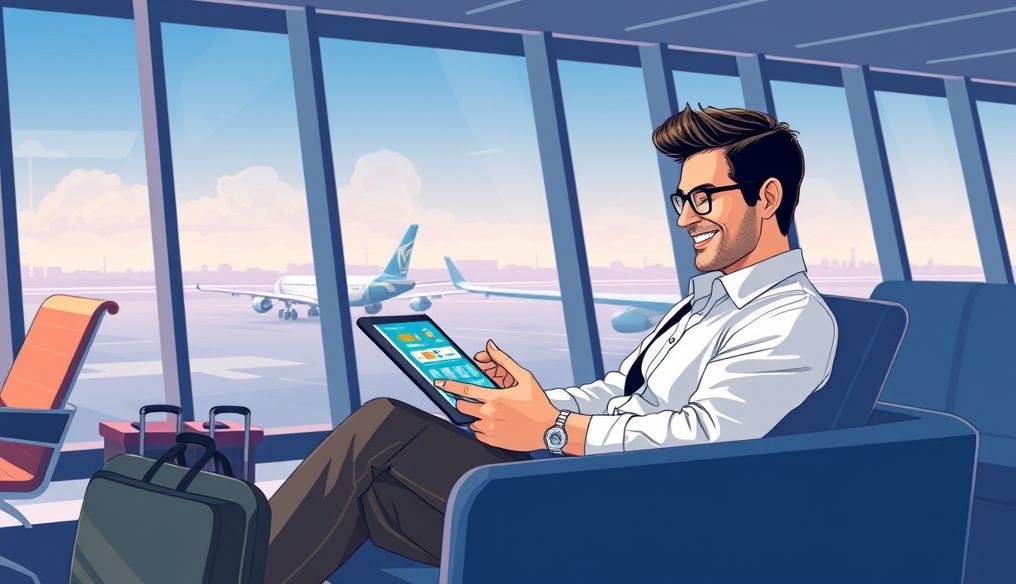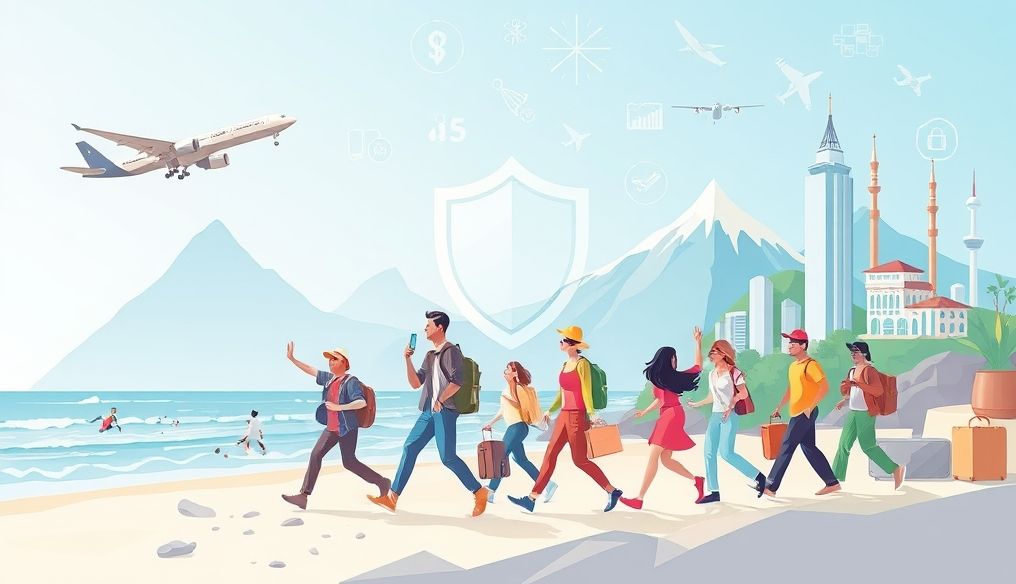Introduction: The World of Airline Loyalty Programs
Airline loyalty programs, also known as frequent flyer programs, are marketing initiatives designed to reward frequent travelers and encourage them to continue using a particular airline's services. These programs vary in terms of the benefits offered, the conditions required, and the mechanisms for calculating miles or points.
Chapter 1: How Do Loyalty Programs Work?
Loyalty programs work by accumulating miles or points each time a member travels with the airline or uses the services of its partners (such as hotels and car rental companies). These miles or points can be redeemed for free airline tickets, upgrades to travel class, or other services.
- Earning Miles/Points: Depends on the distance of the flight, travel class, and membership status of the traveler.
- Membership Tiers: Range from basic membership to higher levels (Silver, Gold, Platinum), where members receive additional benefits as they move up.
- Partners: Airlines often have partnerships with hotels, car rental companies, and credit cards, allowing members to earn miles/points when using these partners' services.
Chapter 2: Benefits of Loyalty Programs for Travelers
Loyalty programs offer many benefits to travelers, especially frequent travelers:
- Free Airline Tickets: The ability to obtain free airline tickets using accumulated miles/points.
- Upgrades to Travel Class: The opportunity to upgrade the travel class from economy to business or first class.
- Priority Booking and Check-in: Getting priority in booking and check-in, saving time and effort.
- Extra Baggage Allowance: Allowing extra baggage weight for free.
- Access to Private Lounges: The ability to enter private lounges at airports, which provide a comfortable environment and excellent services.
Chapter 3: Disadvantages of Loyalty Programs for Travelers
Despite the benefits, there are some disadvantages to consider:
- Difficulty Obtaining Free Tickets: There are often restrictions on the number of seats available for free tickets, especially during peak times.
- Changing Value of Miles/Points: Airlines may periodically reduce the value of miles/points, reducing their worth.
- Fees and Taxes: Travelers often have to pay fees and taxes on free tickets.
- Commitment to a Specific Airline: Travelers may have to choose a specific airline even if its prices are higher than other airlines.
- Expiration Date of Miles/Points: Miles/points may expire if not used within a specified time period.
Chapter 4: Are Loyalty Programs Worth the Effort?
Whether loyalty programs are worth the effort depends on your travel style and priorities:
- Frequent Travelers: If you travel frequently, you are likely to benefit from loyalty programs.
- Occasional Travelers: If you travel irregularly, loyalty programs may not be worthwhile for you.
- Price Seekers: If you are always looking for the cheapest prices, loyalty programs may not be suitable for you, as you may have to pay more to travel with a specific airline.
Chapter 5: Tips for Maximizing the Benefits of Loyalty Programs
If you decide to join a loyalty program, here are some tips to maximize the benefits:
- Choose the Right Program: Compare different programs and choose the one that suits your travel style and preferred destinations.
- Use Affiliate Credit Cards: Use affiliate credit cards to accumulate miles/points on all your purchases.
- Look for Promotional Offers: Look for promotional offers that give you extra miles/points.
- Plan Your Trips in Advance: Plan your trips in advance and try to book free tickets early.
- Be Flexible with Travel Dates: Be flexible with travel dates to increase your chances of getting free tickets.
Chapter 6: Alternatives to Loyalty Programs
If loyalty programs are not right for you, there are other alternatives you can use to save money on travel:
- Price Comparison Websites: Use price comparison websites to find the cheapest flights and hotels.
- Cashback Programs: Use cashback programs to get cashback on your purchases.
- Travel During Off-Peak Times: Travel during off-peak times to take advantage of lower prices.
- Use Low-Cost Airlines: Use low-cost airlines to save money on airline tickets.
Chapter 7: The Future of Loyalty Programs
Loyalty programs are constantly evolving to meet the changing needs of travelers. These programs are expected to see more personalization, integration with modern technologies, and a focus on customer experience.
- Personalization: Providing personalized offers and benefits to each member based on their preferences and behavior.
- Integration with Modern Technologies: Using artificial intelligence and data analysis to improve the customer experience.
- Focus on Customer Experience: Providing a seamless and enjoyable travel experience from start to finish.
Chapter 8: Case Studies
Case Study 1: Emirates' "Skywards" loyalty program, which is considered one of the best loyalty programs in the world, offering diverse benefits and excellent services to its members.
Case Study 2: United Airlines' "MileagePlus" loyalty program, which features a wide network of partners and diverse options for redeeming miles.
Conclusion: Are Loyalty Programs Worth Your Time and Effort?
Airline loyalty programs can be beneficial for frequent travelers, but they may not be worthwhile for everyone. Before joining a loyalty program, it is important to assess your travel style and priorities to determine if the program is worth the effort. Remember that research and comparison between different programs is the key to maximizing benefits.




